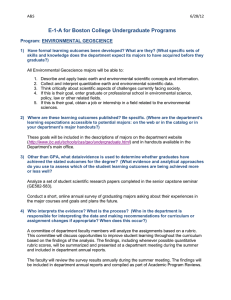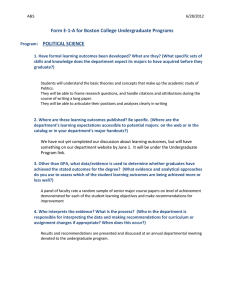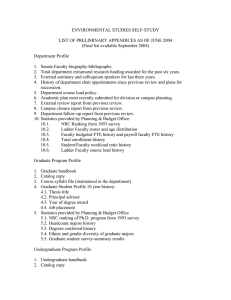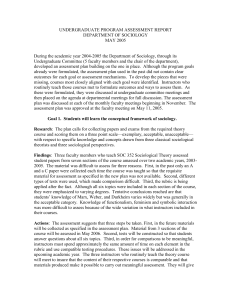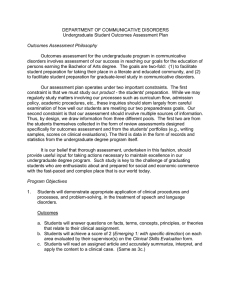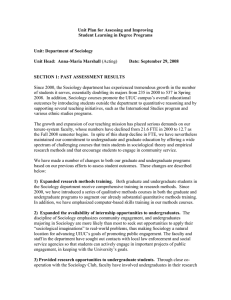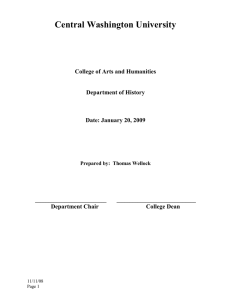Elements of the Assessment Process Form E-1-A for Boston College Departments/Programs
advertisement
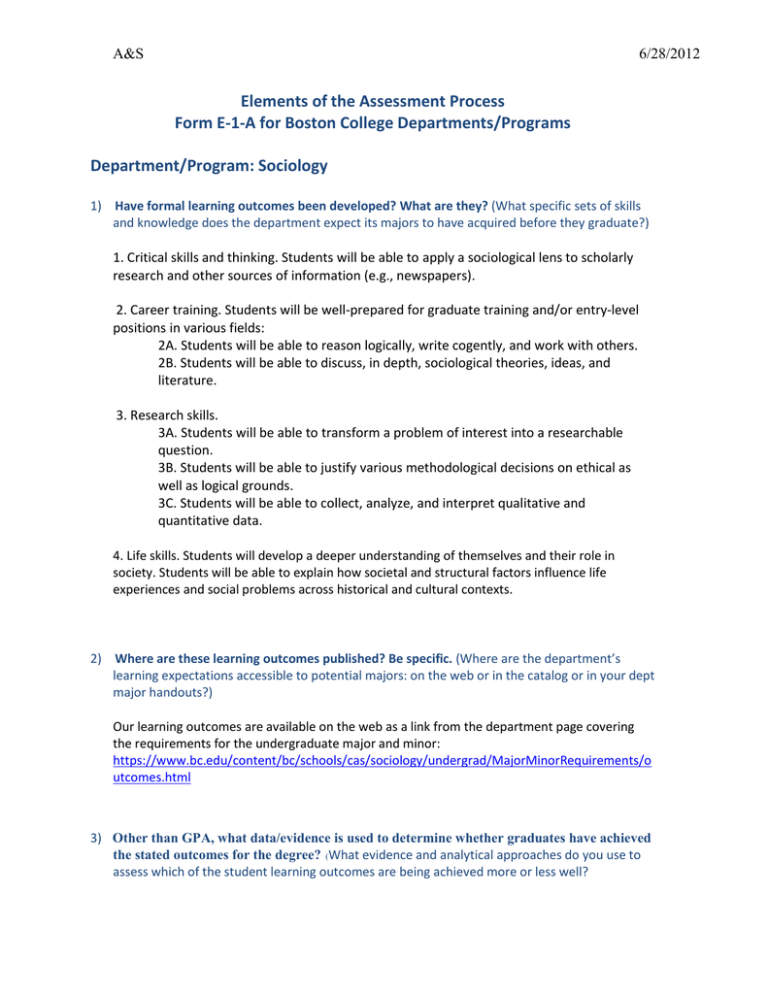
A&S 6/28/2012 Elements of the Assessment Process Form E-1-A for Boston College Departments/Programs Department/Program: Sociology 1) Have formal learning outcomes been developed? What are they? (What specific sets of skills and knowledge does the department expect its majors to have acquired before they graduate?) 1. Critical skills and thinking. Students will be able to apply a sociological lens to scholarly research and other sources of information (e.g., newspapers). 2. Career training. Students will be well-prepared for graduate training and/or entry-level positions in various fields: 2A. Students will be able to reason logically, write cogently, and work with others. 2B. Students will be able to discuss, in depth, sociological theories, ideas, and literature. 3. Research skills. 3A. Students will be able to transform a problem of interest into a researchable question. 3B. Students will be able to justify various methodological decisions on ethical as well as logical grounds. 3C. Students will be able to collect, analyze, and interpret qualitative and quantitative data. 4. Life skills. Students will develop a deeper understanding of themselves and their role in society. Students will be able to explain how societal and structural factors influence life experiences and social problems across historical and cultural contexts. 2) Where are these learning outcomes published? Be specific. (Where are the department’s learning expectations accessible to potential majors: on the web or in the catalog or in your dept major handouts?) Our learning outcomes are available on the web as a link from the department page covering the requirements for the undergraduate major and minor: https://www.bc.edu/content/bc/schools/cas/sociology/undergrad/MajorMinorRequirements/o utcomes.html 3) Other than GPA, what data/evidence is used to determine whether graduates have achieved the stated outcomes for the degree? (What evidence and analytical approaches do you use to assess which of the student learning outcomes are being achieved more or less well? A&S 6/28/2012 1. At the end of each spring term, the Assessment Committee conducts a brief, anonymous online survey of all majors’ perceptions of the progress of their skills and abilities in relation to the department’s formal learning outcomes (i.e., critical skills and thinking, career training, research skills, life skills). 2. The Director of Undergraduate Studies maintains a list of student awards received, publications resulting from student research, graduate placements in master’s and doctoral programs, and graduate placements in employment. 3. At the end of each fall term, the Assessment Committee distributes to all instructors of lower and upper-level elective courses (a) a list of all senior majors enrolled in their course(s), and (b) a rubric. Instructors who assign a term paper or exam question requiring five or more typewritten pages of response complete a rubric for that paper for each senior major. The rubric assesses the department’s formal learning outcomes (i.e., critical skills and thinking, career training, research skills, life skills). 4) Who interprets the evidence? What is the process? (Who in the department is responsible for interpreting the data and making recommendations for curriculum or assignment changes if appropriate? When does this occur?) The Assessment Committee consists of three full-time faculty members, one of whom is the Director of Undergraduate Studies. The Assessment Committee is responsible for (a) creation of the annual student survey, (b) maintenance of the list of student achievements, (c) creation of the rubric for student work, (d) data collection, compilation, and analysis, (e) provision of summary data and recommended actions to the full faculty, and (f) communication with administration, including annual reports to the Dean of Arts & Sciences. Annually at the spring retreat, the full faculty discusses the Assessment Committee’s report and decides upon programmatic changes.
